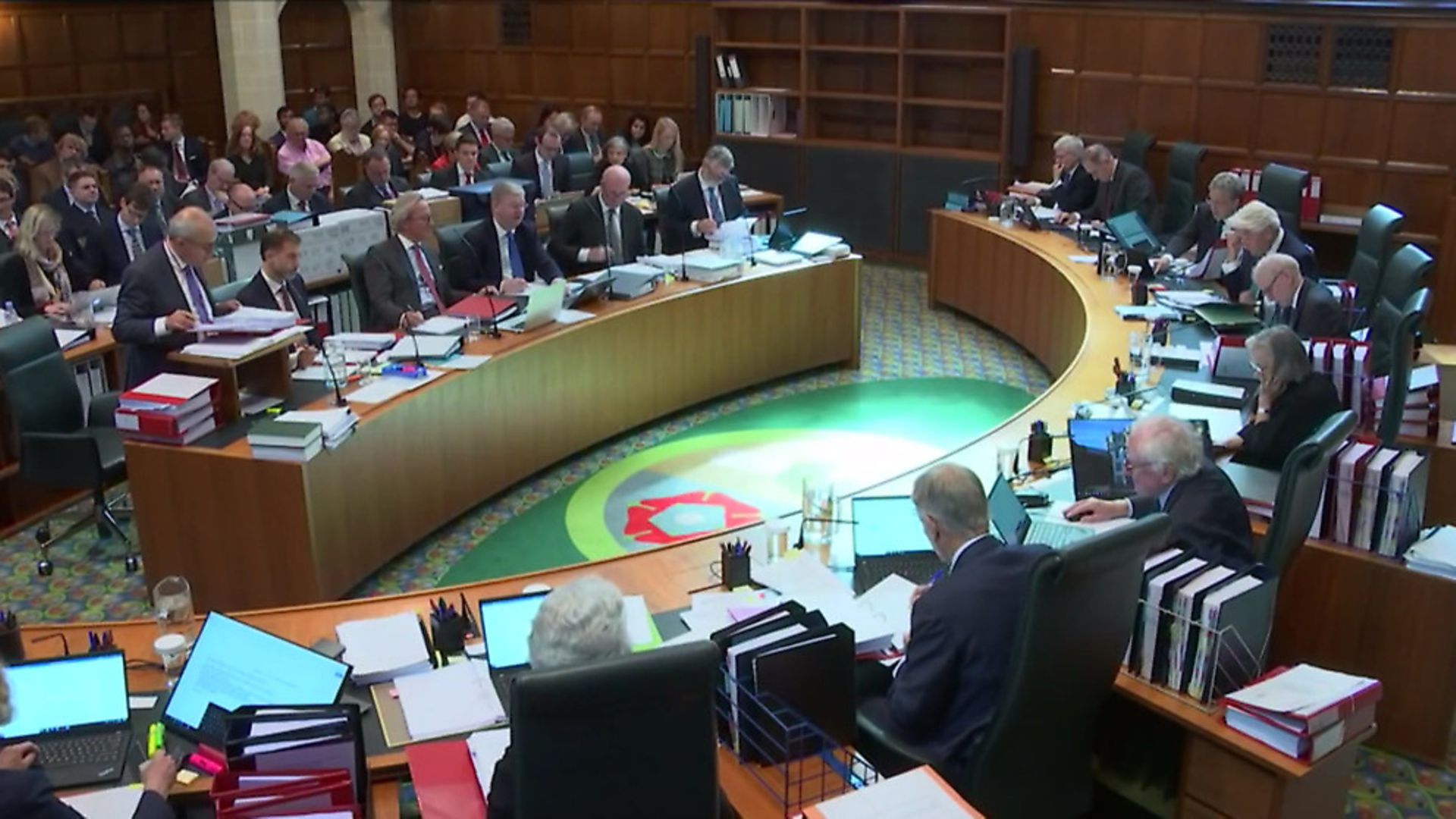
Boris Johnson has declined to provide a witness statement to the Supreme Court, raising questions about why the prime minister was not prepared to comment on the record about his plans.
Lord Pannick, acting on behalf of Gina Miller, said that the prime minister’s motives for proroguing parliament were central to the court case and it “cries out” for an answering from Johnson in the form of a witness statement explaining why he did so.
He told justices in the Supreme Court: “The production of a witness statement from the prime minister, or indeed anyone else, setting out the reasons for advising on a prorogation as long as five weeks would have had legal consequences.
“The legal consequences of such a witness statement would have been, almost inevitably, an application to cross examine.
“The legal consequences would be that it would be a contempt of court, of course, for such a witness statement not to tell the truth.
“Our submission is that the documents (before the court) pose more questions than they answer, as the Inner House has pointed out, and in any event the production of those documents is no substitute for evidence from the prime minister or someone on his behalf stating to the court in terms why he thought prorogation for the exceptionally long period of five weeks.”
He added that the documents before the court and Johnson’s public statements were “at best from the prime minister’s view ambiguous” about his motives for proroguing parliament.
He continued: “This case cries out for an answer in a witness statement to the allegation that was made against the prime minister and, in the absence of such a witness statement and the willingness of the prime minister to submit to potential cross examination, we say the court should infer that there is no answer.”
A failure to provide a signed witness statement was a key argument against the government in the court case in Scotland.
Lord Pannick continued: “Their conclusions, we say, are supported by the prime minister’s own public statements as to his concerns as to what parliament may do and the courts in addition should be prepared in the circumstances to draw an inference from the absence of any evidence on the government’s side by way of a witness statement.
“We submit that on all the material the court should conclude that, but for the prime mnister’s wish to avoid parliamentary control, he would not have recommended to Her Majesty a prorogation for a period of longer than five weeks, but he would have recommended a substantially shorter period… as had occurred on every occasion … in the last 40 years.”
Lord Pannick added that, if the court accepts the prime minister had an “improper motive” for proroguing parliament, it would be for Johnson to provide evidence that it was “not material” to his decision – which he would be unable to do in the absence of a statement.









